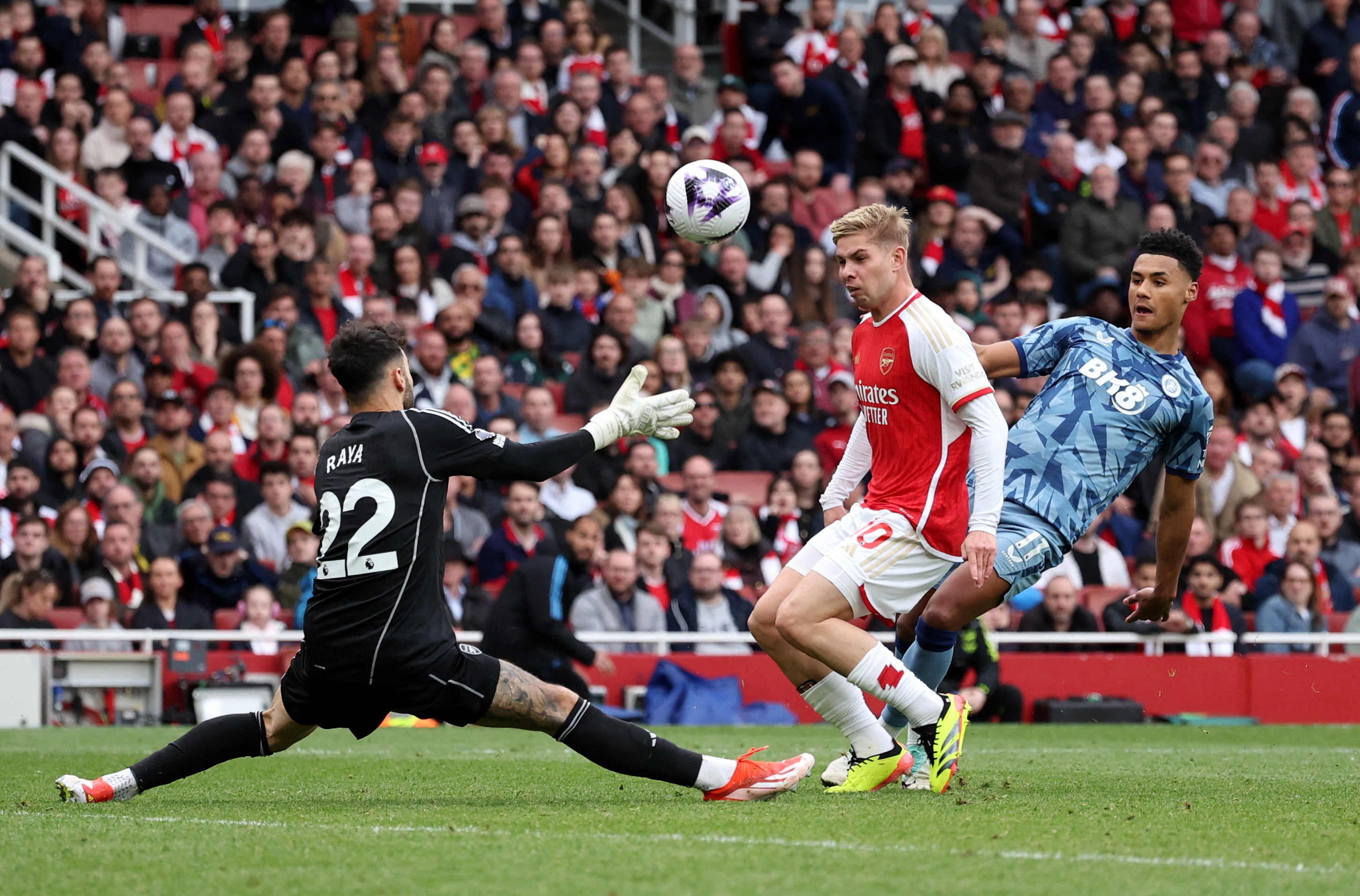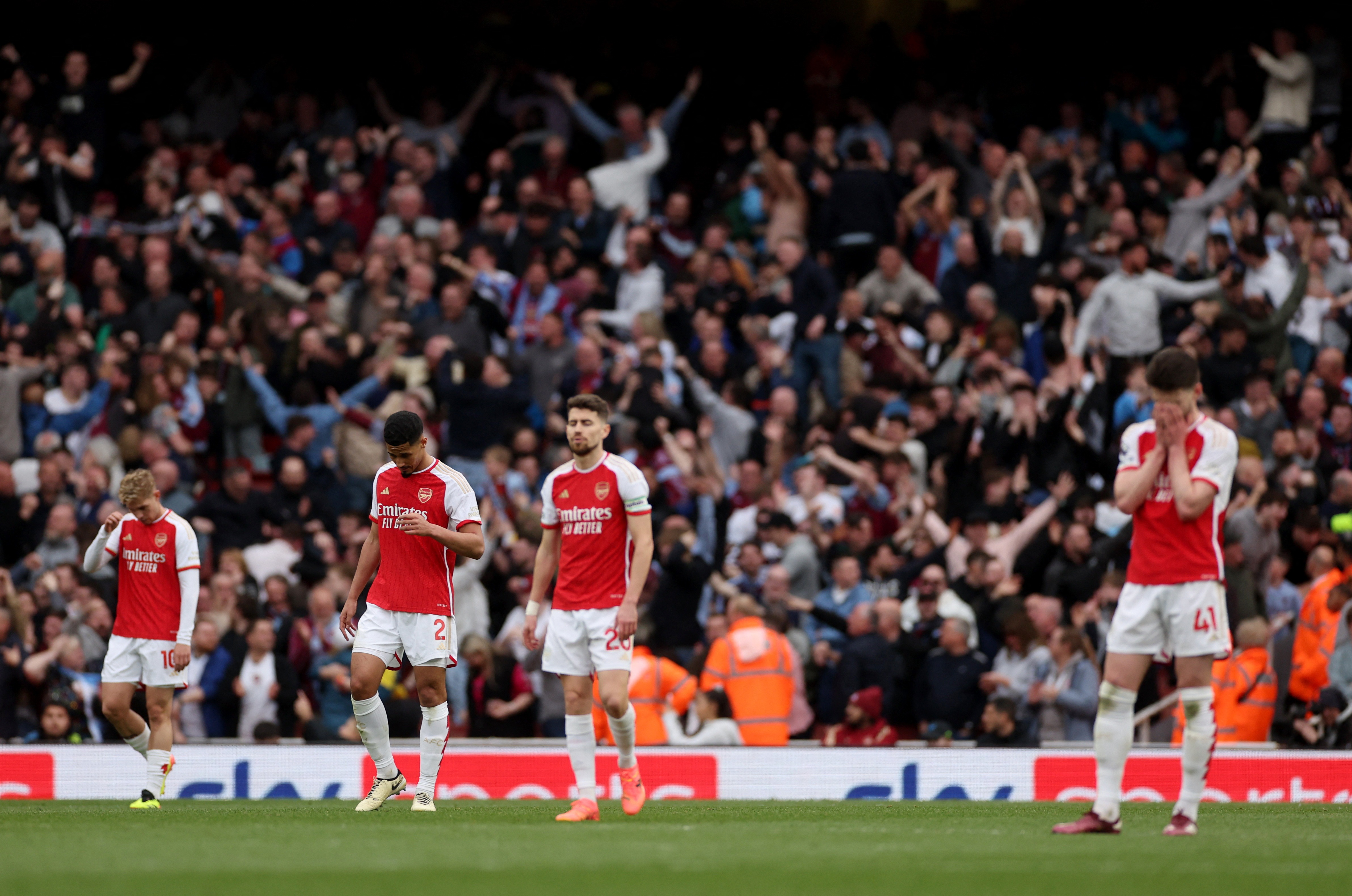Aston Villa's Late Goals Stun Arsenal
Aston Villa's late goals deal a blow to Arsenal's title aspirations, gifting Manchester City the upper hand in the Premier League title race.
Leon Bailey and Ollie Watkins Secure Victory
Leon Bailey opened the scoring in the 84th minute, followed by Ollie Watkins securing the win just two minutes later.



Aston Villa's Persistence Pays Off
Aston Villa's persistence paid off as they hit the woodwork multiple times before Bailey and Watkins found the back of the net.
Impact on Title Race
The result leaves Arsenal two points behind Manchester City, who maintain their lead at the top of the Premier League table. Meanwhile, Aston Villa solidify their position in the Champions League spots.

More to follow…
Frequently Asked Questions
What is the rule of offside in football?
Offside is a rule that prevents players from gaining unfair advantages. A player is offside if their feet, head or any other part of their body are closer to an opponent’s goals line, than the ball as well as the next to last opponent. Being in an offside situation is not a crime unless the player interferes, gains advantage or actively participates in the game.
How do I become a competent football goalkeeper
Becoming a proficient goalkeeper requires specialized training focused on reflexes, agility, and positioning. A goalkeeper should be proficient in stopping shots, commanding the penalty area with catching and punching skills, and distributing both with hands and feet. Goalkeeping is also a combination of mental resilience, making decisions under pressure, and communicating effectively with the defense. For goalkeepers, consistent practice, constructive criticism from coaches, and an analysis of performances for improvement are all essential.
How important are a footballer’s diet and nutrition to him?
A footballer’s recovery and performance are largely influenced by nutrition. A balanced diet containing the proper combination of carbohydrates (carbohydrates), proteins, fats (fats), vitamins, and mineral is required for energy production, muscle recovery, and overall health. Dehydration, which can affect performance in a negative way, is another important factor. Training and match schedules can affect the timing of meals. Sports nutritionists are often consulted to develop a personalized diet plan.
What is the best way to defend yourself against an offensive team that’s strong?
A disciplined, strategic approach is required to defend against an offensive team that is strong. Tactics such as forming a solid defence, maintaining a tight team formation and applying a disciplined scoring system are essential. By forcing the opposing attackers to the sides instead of the center, you can reduce their chances of scoring. When possession is lost, it’s important that defenders communicate effectively and quickly switch to defense. Counter-attacking techniques can be used to exploit gaps that open up as offensive players commit themselves forward.
How can I stay motivated to improve my football skills?
To stay motivated and focused, it is important to set clear goals that you can achieve and track your progress. Regularly reviewing performances in training and matches can help identify both strengths to build upon and areas to improve. Finding a partner to train with or joining a team of players can encourage perseverance by creating supportive relationships. A positive attitude and visualizing your success are also powerful tools for motivation. Incorporating variety in training routines to keep practices engaging, and allowing for sufficient rest and recovery are also important strategies to maintain motivation and focus for long-term development in football.
Statistics
- Studying match footage for at least 4 hours a week can lead to a 10% improvement in a player’s tactical awareness on the field.
- Defensive units that practice coordinated drills together at least twice a week concede 18% fewer goals in match play.
- Players with a balanced diet containing adequate macronutrients have a 30% lower injury rate than those with less balanced nutritional habits.
- Goalkeepers who engage in specialized reaction-time training reduce their goals-conceded tally by an average of 25% over a season.
- Football players who follow a structured fitness regimen can see up to a 7% increase in their on-field speed and agility benchmarks.
External Links
soccercoachweekly.net
ffacoach.com
fifa.com
topendsports.com
nscaa.com
How To
How To Boost Your Football Intelligence
To improve your tactical intelligence in football, begin by studying various formations and strategies employed by top teams. Pay attention to the timing of runs and the positioning of players when you watch professional matches. Regularly participate in small-sided match simulations to improve your ability to make decisions. Engage with a coach or a mentor to analyze your gameplay, and discuss strategic adaptability. Regularly attending tactical workshops or reading books on the subject can broaden your knowledge and help improve your ability to play.

